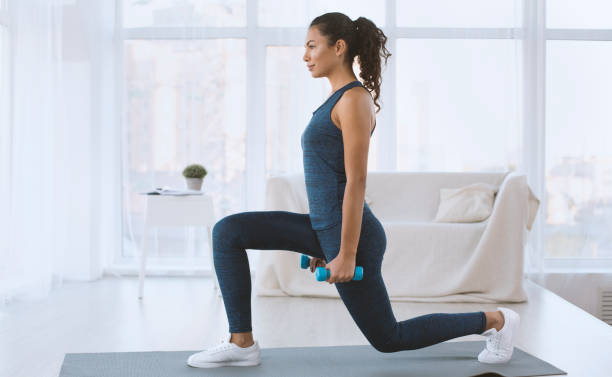Benefits of exercise

One of the most common questions I receive is “What is the best kind of exercise?”
This is the simple answer: Is it the one that you’re currently doing? Engaging in enjoyable exercise is a great way to make time when you are short on time. Because our bodies are wired to seek pleasure, rather than pain (which exercise may induce), pleasure is crucial.
Exercise has been shown to have many health benefits. It has also been referred to as a prescription by doctors and other health professionals for your benefit. When engaging in exercise, you need to consider your medical history, risks, preferences, goals and abilities.
How often and how much exercise should you do?
When it comes to exercise, the evidence suggests that more is better and that any exercise is better than no exercise. It is better to do 200 minutes of moderate exercise per week than 150 minutes. Aiming for 20 minutes per week is also better than aiming for 10 minutes. We also know that mortality rates are linearly related to intensity of physical activity. This means that engaging for 10 minutes in intense intensity exercise is better than for 10 minutes in moderate intensity exercise. You will reap the many health benefits that we will soon discuss if you maintain 150 minutes of moderate-to-vigorous physical activity per week (30 minutes five days a semaine or 1 hour three times per week). You must still move, and you should aim to walk 15000 steps per day.
The general recommendation is to combine resistance training and aerobic exercise.
At least 30 minutes of moderate aerobic exercise, such as walking or cycling, at least five times per week.
Moderate weightlifting, at most twice per week or enough to cover all major muscle groups.
Exercise should be tailored to your goals and circumstances. You should also remember to listen to your body and make informed choices. You can rest assured that there is no doubt in the fact that regular exercise and movement are effective in preventing primary and secondary diseases, as well as premature deaths. This is true for all ages, and even people with disabilities. Research has shown that people who are sedentary and unfit experience the greatest health benefits.
Did you know that most people are suffering from chronic dehydration? And that your thirst is a sign you may be dehydrated. Did you also know that thirst is one of the first senses you lose when you get older?
More than 90% of my clients suffer from dehydration. They don’t drink enough water, don’t eat enough vegetables and fruits that are hydrating, and use excessive diuretics. This can lead to dehydration. To avoid dehydration, it is crucial that you prioritize drinking before eating.
Impacts of dehydration:
Brain function – Studies have shown that even mild dehydration can affect cognitive functioning, such as memory, attention, and alertness. It can also cause mood impairments like fatigue, confusion, and anger. Dehydration poses a risk of delirium and is especially important for those who are elderly, the mentally ill, or suffer from dementia.
Quality of sleep – Even mildly dehydrated people can have trouble sleeping at night. Your mouth and nasal passages become dry from dehydration, which can lead to irritable snoring and hoarseness the next morning. You may also experience leg cramps or fragmented sleep, which can further affect your cognitive functioning, alertness, and mood the next day.
Dehydrated energy production can significantly reduce its output.
Weight loss – Did you know that the more you drink, the smaller you will shrink? You now know why. Your brain doesn’t distinguish between hunger and thirst so once you are dehydrated, your brain will send signals that increase thirst, hunger, and cravings. This can make it more likely that you overeat. This state can affect your ability to think clearly and increase energy levels, making it easier to succumb to temptations for sweet or fatty foods.
Gut function – A dehydrated body can cause constipation. This can lead to altered microbiome, hormonal dysregulation, small intestinal bacterial growth (SIBO), and increased oxidative stress. Your body is programmed to empty your bowels approximately every 12-18 hours. This helps your body eliminate toxins, hormones, and cholesterol. It also does one-third of its total detoxification. By staying hydrated, you can open your bowels every day and promote good health.
Detoxification: Everyday we are exposed to toxins and chemicals (air, water, food,cleaning products,etc.). Our bodies work tirelessly to detoxify and keep us healthy. Hydration is crucial to moving many water-soluble chemicals and toxins that can otherwise get stored in your body or fat cells.
Exercise has many benefits
Weight loss and building muscle and strong bones
Increased energy
Better brain function leads to higher work performance, lower anxiety, depression, and dementia.
Better sleep – Deeper and more comfortable sleep
Feeling less stressed and in a better mood
Better posture and less pain
Better breathing and oxygenation for your tissues
Better circulation and better nutrient delivery to the cells
This will reduce inflammation and prevent cancer, diabetes, high blood pressure, cholesterol, and other diseases. Anca Vereen, a holistic dietitian, nutritionist, psychotherapist, and breathing coach, specializes in lifestyle medicine, weight reduction, and mental health. Visit www.ancavereen.com to book an appointment or improve your health.




